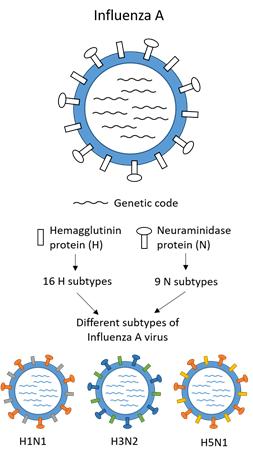12 January 2018
Fighting Australian Flu
Free Flu vaccine is recommended by the NHS for anyone taking immune-suppressing medications, people over 65, pregnant women, or people with a long term condition such as diabetes, a heart, lung, kidney or neurological disease.
Flu season comes around each year. There are always a few different strains circulating each winter, and this year it’s the Australian flu that appears to be the most widespread strain. Australian flu is a H3N2 subtype of the Influenza A virus and was named after the flu outbreak earlier this year in Australia.
With bedrest, plenty of fluids and over the counter painkillers, most people will recover from the flu in a week or so. However, in some groups the flu is more likely to cause a severe illness and can lead to serious complications such as bronchitis or pneumonia.
‘At risk’
groups:
People on immune suppressing medicines – Including Methotrexate, Ciclosporin, Hydroxycarbamide, Otezla, Skilarence, Cosentyx, Adalimumab, Etanercept, Infliximab, Stelara, Simponi, Cimzia and Taltz.
Please note, the immunosuppressing medicines listed here are the ones that people with psoriasis or psoriatic arthritis may be taking. There are other immunosuppressive medicines available that treat different conditions. If you are unsure whether you are taking an immunosuppressive medicine, please consult your doctor or pharmacist.
- People over 65
- Pregnant women
- People with a long-term health condition such as diabetes, obesity, or a heart, lung, kidney or neurological disease.
How to protect against
Flu:
The best protection against catching the flu is the annual flu vaccine. The vaccine contains a number of different flu subtypes so will help protect against the main strains circulating this winter. It is changed twice a year by the World Health Organisation based on the strains currently circulating in humans.
There are two types of flu vaccine: a nasal spray and an injection. The injected flu vaccine contains inactive viruses and is offered free to ‘at risk’ groups by the NHS. It is recommended to all in the ‘at risk’ groups. The British Association of Dermatologists also recommend that anyone who lives with someone taking immunosuppressants should also have the injected flu jab each year.
The nasal spray is mostly given to children. However, the nasal spray contains live attenuated (weakened) viruses and so it is not recommended for children who have:
- A severely weakened immune system i.e. from immunosuppressant medications
- Severe asthma – that is being treated with steroid tablets or high-dose inhaled steroids
Is there anyone who
shouldn’t have the flu vaccine?
Check with your GP before getting vaccinated if you have had a reaction to the flu jab in the past or are allergic to eggs – this is important as flu vaccines are often grown in hens’ eggs.
If you have
flu, see your GP if:
- you are in an ‘at risk’ group listed above
- your symptoms don't improve after 7 days
- you're worried about your child's symptoms
Call 999 or
go to A&E if you:
- develop sudden chest pain
- have difficulty breathing
- start coughing up blood
